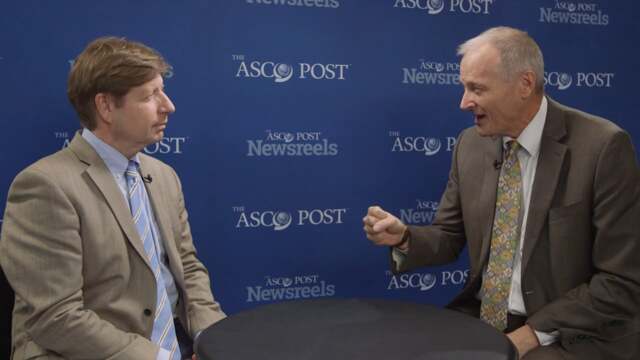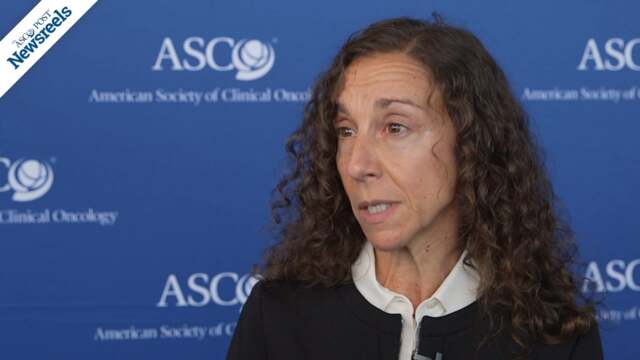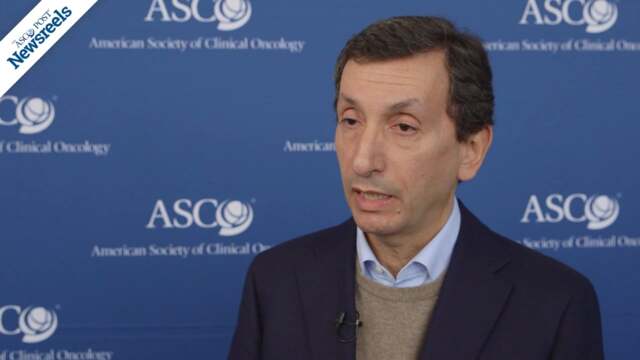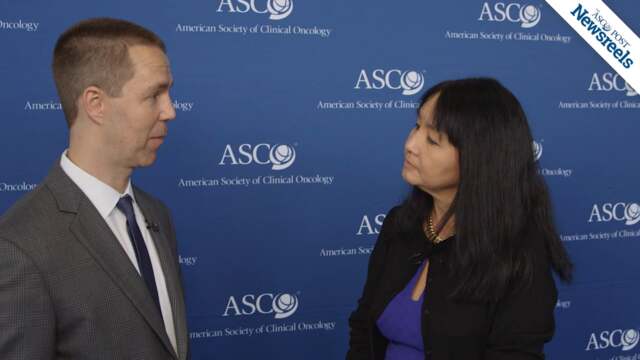Vali A. Papadimitrakopoulou, MD, and Heather A. Wakelee, MD, on Bevacizumab for Early-Stage NSCLC
2016 ASCO Annual Meeting
Vali A. Papadimitrakopoulou, MD, of MD Anderson Cancer Center, and Heather A. Wakelee, MD, of Stanford University, discuss findings on adjuvant chemotherapy with or without bevacizumab for early-stage non–small cell lung cancer, with outcomes based on chemotherapy subsets (Abstract 8507).
The
Marcel Verheij, PhD, of the Netherlands Cancer Institute, and John Marshall, MD, of Georgetown University Lombardi Comprehensive Cancer Center, discuss findings from this multicenter phase III study of neoadjuvant chemotherapy followed by either surgery and chemotherapy or surgery and chemoradiotherapy in resectable gastric cancer (Abstract 4000).
Julie R. Park, MD, of Seattle Children’s Hospital, discusses findings from this phase III trial of tandem myeloablative autologous stem cell transplant using peripheral blood stem cell as consolidation therapy for high-risk neuroblastoma (Abstract LBA3).
James Kochenderfer, MD, of the National Cancer Institute, discuss results of a small study on genetically modified CAR-T cells, which may well become a standard lymphoma treatment (Abstract LBA3010).
Michele Cavo, MD, of the Seràgnoli Institute of Hematology, Bologna University School of Medicine, discusses results from this phase III study of upfront autologous stem cell transplantation vs novel agent-based therapy for multiple myeloma (Abstract 8000). To see the Italian version of this interview, please click here.
Eric Roeland, MD, of the University of California, San Diego, and Linda Van Le, MD, of the University of North Carolina discuss ways to manage symptoms that affect up to 80% of postmenopausal women, diminishing their quality of life.





